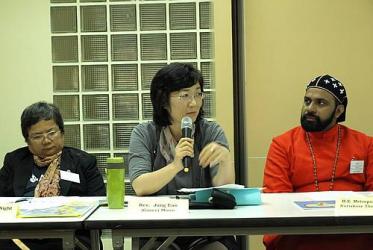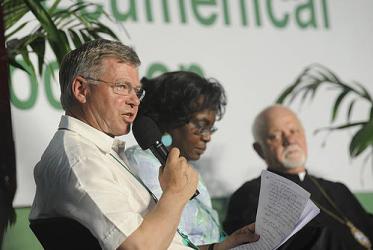Displaying 161 - 180 of 302
Can you imagine a world without nuclear weapons?
03 October 2011
What does “God's security” look like?
24 May 2011
Christian alliance for advocacy marks successes, future challenges
09 December 2010
Conference explores global church's responsibility to confront racism
08 September 2010


